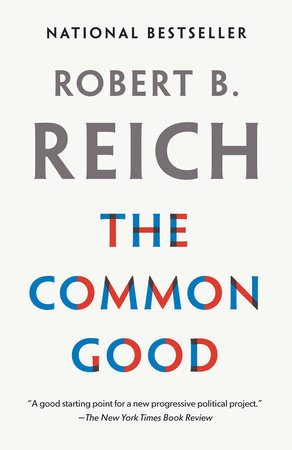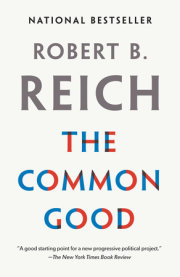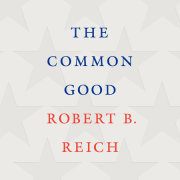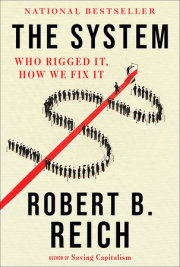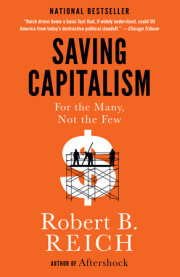Introduction I was at the impressionable age of fourteen when I heard John F. Kennedy urge us not to ask what America can do for us but what we can do for America. Seven years later I took a job as a summer intern in the Senate office of his brother Robert F. Kennedy. It was not a glamorous job, to say the least. I felt lucky when I was asked to run his signature machine. But I told myself that in a very tiny way I was doing something for the good of the country. That was a half century ago. I wish I could say America is a better place now than it was then. Surely our lives are more convenient. Fifty years ago there were no cash machines or smartphones, and I wrote my first book on a typewriter. As individuals, we are as kind and generous as ever. We volunteer in our communities, donate, and help one another. We pitch in during natural disasters and emergencies. We come to the aid of individuals in need. We are a more inclusive society, in that African Americans, women, and gays have legal rights they didn’t have a half century ago. Yet our civic life—as citizens in our democracy, participants in our economy, managers or employees of companies, and members or leaders of organizations—seems to have sharply deteriorated. What we have lost, I think, is a sense of our connectedness to each other and to our ideals—the America that John F. Kennedy asked that we contribute to.
Starting in the late 1970s, Americans began talking less about the common good and more about self-aggrandizement. The shift is the hallmark of our era: from the “Greatest Generation” to the “Me Generation,” from “we’re all in it together” to “you’re on your own.” In 1977, motivational speaker Robert Ringer wrote a book that reached the top of the
New York Times best-seller list entitled
Looking Out for # 1. It extolled the virtues of selfishness to a wide and enthusiastic audience. The 1987 film
Wall Street epitomized the new ethos in the character Gordon Gekko and his signature line, “Greed, for lack of a better word, is good.”
The past five decades have also been marked by growing cynicism and distrust toward all of the basic institutions of American society—government, the media, corporations, big banks, police, universities, charities, religious institutions, the professions. There is a wide and pervasive sense that the system as a whole is no longer working as it should. A growing number of Americans feel neglected and powerless. Some are poor, or black or Latino; others are white and have been on a downward economic escalator for years. Many in the middle also feel stressed and voiceless. Whether we call ourselves Democrats or Republicans, liberals or conservatives, we share many of the same anxieties and feel much of the same distrust. We have nonetheless been cleaved into warring ideological tribes, and tribes within those tribes. Some of us have even been seduced by demagogues and conspiracy theorists. We seem to be a long way from when John F. Kennedy asked that Americans contribute to the well-being of all. We no longer even discuss what we owe one another as members of the same society.
As I write this, I am now a septuagenarian and Donald Trump is president. In many ways Trump epitomizes what has gone wrong. But as I hope to make clear, Trump is not the cause. He is a consequence—the logical outcome of what has unfolded over many years. His election was itself propelled by widespread anxieties, and distrust toward our political and economic system. Say what you want about him, Trump has at least brought us back to first principles. Some presidents, like Ronald Reagan, got us talking about the size and role of government. Trump has got us talking about democracy versus tyranny. Some presidents, like Bill Clinton, invited a discussion of how we can make the most of ourselves. Trump, by dint of his pugnacious character and the divisiveness he has fueled, raises the question of what connects us, of what we hold in common.
Hence, this book.
Is there a common good that still binds us together as Americans? That it’s even necessary to ask shows how far we’ve strayed. Today, some think we’re connected by the whiteness of our skin, or our adherence to Christianity, or the fact that we were born in the United States. I believe we’re bound together by the ideals and principles we share, and the mutual obligations those principles entail.
My hope is that this book provokes a discussion of the good we have had in common, what has happened to it, and what we might do to restore it. Perhaps this book can even provide a means for people with opposing views to debate these questions civilly. My goal is not that we all agree on the common good. It is that we get into the habit and practice of thinking and talking about it, and hearing one another’s views about it. This alone would be an advance.
I should clarify from the start what this book is not. It is not about communism or socialism, although in this fractious era I wouldn’t be surprised if the word “common” in the title causes some people to assume it is. It is not a book about what progressives or Democrats or Republicans ought to do to win elections, what messages they should convey, or policies they should propose. There is already quite enough advice to go around. And it’s not a book about Donald Trump, although he does come up from time to time.
It is a book about what we owe one another as members of the same society—or at least what we did owe one another more than a half century ago when I heard John F. Kennedy’s challenge. It is about the good we once had in common—and, if we are to get back to being a far better functioning society, must have again.
Copyright © 2019 by Robert B. Reich. All rights reserved. No part of this excerpt may be reproduced or reprinted without permission in writing from the publisher.

